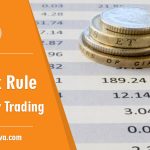How Can I Avoid Terrible Effects of Forex Losses or Slippage

![]()
Every traders in forex encounter different ways of forex losses. Well we shall discuss about the counter ways to avoid these forex losses.
Can You Explain Why Forex Losses Occurs?
Slippage, a phenomena, is to blame for this.
This article will explain what forex slippage is, how it operates, and how to prevent it.
What Is Slippage?
Slippage occurs when an order is performed at a price that is different from the price it was asked for. It is particularly prevalent in markets that move quickly and are extremely volatile because they are susceptible to unforeseen trend adjustments.
A large order with insufficient volume to cover the bid/ask spread at the starting price can also result in this.
Whether you pay more or less than what was agreed upon, it’s still slippage.
Why Does Slippage Occur?
When there is a dearth of market liquidity or a high amount of volatility, slippage is likely to happen. In low liquidity marketplaces, few market players are prepared to take the other side.
As a result, after a buyer or seller has been identified, there is a longer time between placing an order and having it executed.
Due to the delay, the asset’s price may change, which would indicate slippage. In choppy markets, price changes can occur quickly—even in the few seconds it takes to fill an order.
The Forex Market and Slippage
When an order is placed at a less advantageous rate than the one you requested in the order, this is known as slippage.
It can be challenging to place an order in the currency market at a specific price when trading volatility is high. The only way to completely prevent this is through limit orders, but doing so increases the likelihood that your trade won’t execute at all.
Slippage occurs on less popular currency pairs like USD/MXN and USD/HKD in the forex market. Major or minor forex pairs have less volatility and more liquidity.
Illustrative of Forex Slippage
Let’s say you choose to open a long position on the notoriously volatile GBP/JPY currency pair. The broker’s quotation for the pair is 0.7020; but, during the time that the order was being placed, the price may have increased to $0.7028. If this were to happen, you would simply have experienced slippage because you would be purchasing at a higher price than you had anticipated.
Why Does Slippage Occur?
Around or during significant news events, slippage is frequent in the FX market. Increased volatility can be caused by political unrest in a nation, bank statements regarding interest rates and monetary policy, and other factors. Slipping can result from this in turn.
You might choose to engage in trading before or right away following the announcement. However, the ensuing volatility may make it challenging to obtain the desired price. Consult the economic calendar to avoid trading during important news events.
What are the Least Susceptible Currency Pairs to Slippage?
Major Forex pairs are least likely to experience slippage due to their huge liquidity, as was previously indicated. These contain the exchange rates for the US dollars of EUR, GBP, JPY, CHF, AUD, NZD, and CAD.
The minor currency pairs EUR/GBP and GBP/JPY are not susceptible to slippage.
Exotic currencies are more prone to forex slippage, such as USD/MXN and USD/ZAR.
When Does the Most SlippageTake Place?
The greatest slippage happens at times of strong volatility or during significant news events.
In volatile markets, price changes occur quickly, even before an order is processed. As a result, slippage may occur as a pair’s price changes over time.
In January 2015, no FX pair lost 2780 pips in 30 minutes more quickly than USD/CHF.
The EUR/CHF peg was terminated by the Swiss National Bank (SNB) in January 2015. Thus, the USD/CHF decreased. Before that moment, the movement of a major currency in that direction was unfathomable.
How May Slippage be Avoided or its Effects Minimised?
Although slippage is challenging to prevent, there are a few tactics that can help. You can take the following steps to prevent slipping:
Control Risk When Making Announcements
To manage risks, you could want to start a transaction soon after the news. To benefit from market volatility and prevent slippage, enter your trade as soon as possible following the announcement.
If you’re not day trading or forex scalping, you might merely decide to avoid trading during significant news events. A severe or unexpected slide will be avoided as a result. Simply using a stop-loss order will ensure that you leave should the value of your assets decrease.

Modifying the Market Orders’ Nature
Guaranteed stops, in contrast to other types of stops, are impervious to slippage and will always terminate your trade at the precise level you choose.
They are therefore the best tactic to lessen the risk of a market going against you.
Limits, on the other hand, can help to lessen the possibility of slippage while you’re beginning a transaction or want to participate in a profitable deal.
Avoid Trading During Significant Economic Events
Avoid trading around significant news occurrences if you can. Major news releases, as previously mentioned, are a significant factor in forex slippage. Therefore, it is preferable to hold off on taking positions until the news announcement.
You can prolong your stop-loss and modify it later if you are holding an open position during a significant occurrence.
Trade extremely liquid markets with little volatility.
Since activity is highest during certain times, limiting your trading to those periods will lower your risk of slippage.
There is a higher likelihood that your trade will be completed quickly and at the price you requested as a result.
Last thoughts
You are now fully informed regarding how to manage slippage in your trades!
Use limit orders rather than market orders and steer clear of trading during significant news releases to lessen forex slippage.
visit us on: www.milliva.com






Support & Resistance and Supply & Demand - Milliva
03rd Aug 2022[…] are advantageous levels for rolling stop losses or for closing all or a portion of a […]
What Makes A-Book and B-BooK Forex Broker Different
12th Aug 2022[…] positions that are opposed to those of their clients. Since 95% of retail forex traders experience financial losses, the counterparty operations of the market makers are enormously lucrative. The 5% of retail […]